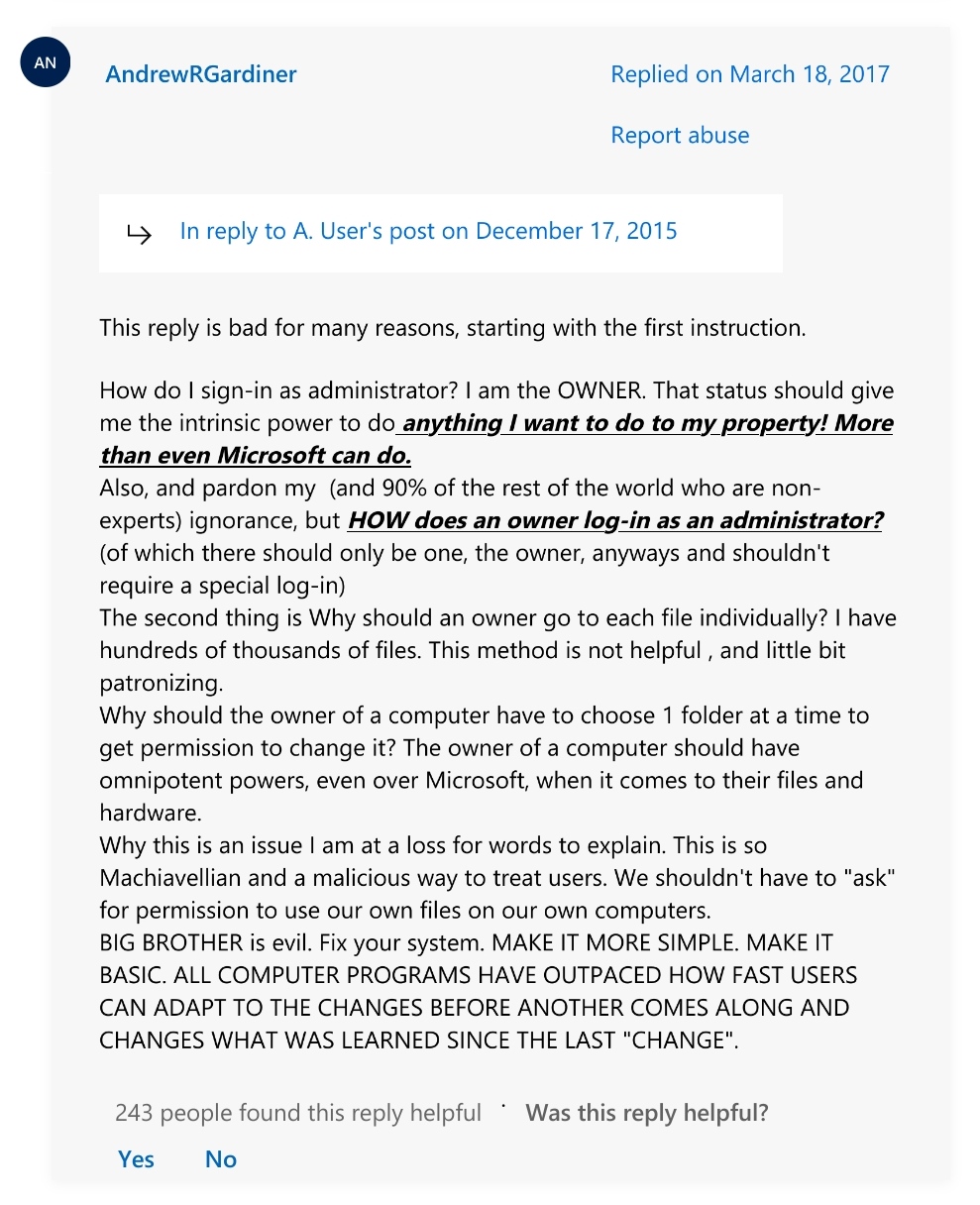this post was submitted on 08 Jul 2024
500 points (97.0% liked)
Programmer Humor
32559 readers
573 users here now
Post funny things about programming here! (Or just rant about your favourite programming language.)
Rules:
- Posts must be relevant to programming, programmers, or computer science.
- No NSFW content.
- Jokes must be in good taste. No hate speech, bigotry, etc.
founded 5 years ago
MODERATORS
you are viewing a single comment's thread
view the rest of the comments
view the rest of the comments

I want to say "Haha, Idiot trusting Microsoft".
But honestly I want the same stuff he wants. Including modems in mobile phones. Including EVERYTHING I own.
There's an OS you might like. It has no UAC, no file permissions, no sudo nor chmod, as it has no multi-user support, no antivirus and no firewall, no protection rings, not even spectre/meltdown mitigations, and most of all - no guard-rails whatsoever: You can patch the kernel directly at runtime and it won't even give you a warn. And yet, it is perfectly safe to run. It's called TempleOS and it achieves such a flawless security by having no networking support whatsoever and barely any support for removable media. If you want a piece a software - you just code it in, manually. You don't have to check the code for backdoors if it's entirely written by you... only for CIA at your actual back door...
Huh, didn't realise Windows is on a level to be compared to TempleOS. And losing. Thanks for that.
What does 'modems in mobile phones' mean? Isn't the whole thing a modem strapped onto a screen? What am I missing?
I think they just mean they should have control over the modem. They are all locked down and proprietary with known backdoors throughout history, effectively bypassing any OS level security.
A lot of phone modems ship with their own SoC (processor) running its own OS. It's much smaller and slower than the main phone SoC but, depending on its implementation, it can have full access to all of your main processor's memory through DMA.